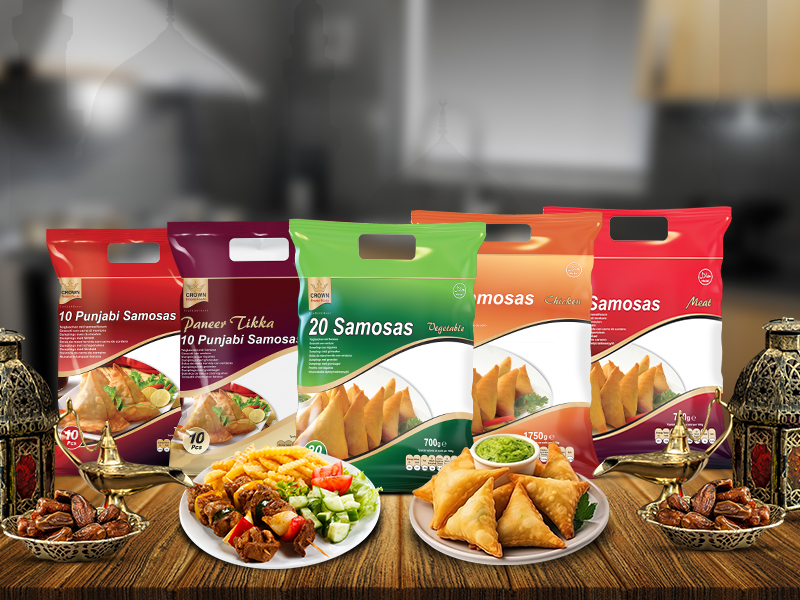Ramadan is a month of reflection, prayer, and self-discipline. It is also a time when the kitchen becomes the heart of the home, bustling with preparation for suhoor and iftar – the meals that bookend the daily fasting. Whether you’re observing Ramadan for the first time or a seasoned veteran, ensuring your kitchen is ready for the holy month is crucial. From stocking up on essential pantry items to optimizing your cooking space, here’s our guide on how to prepare your kitchen for the month of Ramadan.
1. Conduct a Deep Clean
The first step in preparing for Ramadan is to deep clean your kitchen. The month is a time for spiritual renewal and a physically clean kitchen can set the stage for a fresh start. Wipe down all surfaces, clear out expired food from the pantry, and organize your storage. A clean, clutter-free kitchen will make preparation for iftar and suhoor more efficient and enjoyable.
2. Stock Up on Staples
Before Ramadan begins, stock up on pantry essentials such as rice, lentils, spices, flour, and oil. Not only does this save you multiple grocery store trips during the busiest time of the year, but it also ensures you have the necessary supplies to prepare traditional Ramadan dishes. You’ll also want to have a supply of dates, a staple for breaking the fast, and other dried fruits and nuts for suhoor.
3. Plan Your Meals
A little meal planning goes a long way during Ramadan. Consider creating a schedule for the entire month, outlining the dishes you’ll serve for suhoor and iftar. This can help with grocery shopping, time management, and reducing waste. Decide on hearty, slow-to-digest foods for suhoor that will sustain you throughout the day, and lighter, more hydrating options for iftar.
4. Organize Your Kitchen
A well-organized kitchen can save you precious time and reduce stress. Group similar items together – keep baking essentials in one spot, grains and pasta in another – and label everything if necessary. Make sure your most frequently used utensils, pots, and pans are easily accessible for suhoor and iftar preparation. Maximize storage space by using stackable containers for dry goods and invest in a good set of airtight jars for longer shelf life.
5. Prep Ahead of Time
Batch cooking can be a lifesaver during Ramadan. Spend a day prepping ingredients and even assembling and freezing some meals, like samosas or casseroles, that can simply be reheated when needed. This forward-planning tactic not only saves time during the busy month but also allows you to vary your meals without much effort.
6. Refresh Your Spices
When was the last time you checked the expiration date on your spices? Fresh, potent spices are the key to flavorful dishes. Take the time to replace any that have expired and stock up on new ones. Consider purchasing whole spices and grinding them yourself for a burst of freshness and intensity of flavor. Store spices in a cool, dark place to keep them at their best for the month.
7. Create a Refreshment Station
Fasting during long, hot days means it’s essential to stay hydrated. Clear a space in your kitchen for a refreshment station with easy access to water, juice, and other non-caffeinated drinks. Consider preparing jugs of infused water with fresh fruits and herbs for a more enticing way to hydrate without disrupting the fast.
8. Invest in Multi-Functional Appliances
Streamline your cooking process by investing in multi-functional appliances such as pressure cookers, slow cookers, or air fryers. These versatile gadgets save time, countertop space, and can make preparing ingredients for meals a breeze. From quick dishes for suhoor before dawn to elaborate iftar meals, these appliances are worth the investment.
9. Revamp Your Kitchen Setup
Take a look at your kitchen layout and see if there are any improvements to be made. Whether it’s rearranging the counters for more workspace, installing better lighting, or investing in a more efficient oven, small upgrades can make a big difference, especially during the month of long meal preparations.
10. Consider Sustainability
Ramadan is about more than just the food – it’s about respecting the planet and living sustainably. Opt for reusable containers and eco-friendly food storage solutions. Buy local produce and consider meat-free meals to reduce your carbon footprint. When shopping, bring your own bags to reduce plastic waste. These small changes can have a lasting impact on the planet and on the spirit of Ramadan.
Preparing your kitchen for Ramadan is a spiritual act as much as it is practical. By purifying and organizing your space, stocking up on essentials, and making smart cooking decisions, you can ensure that your time in the kitchen is productive and grounded in the values of the holy month. With these ten tips, your kitchen will be the perfect place to foster community, mindfulness, and nourishment throughout Ramadan.
Check: A Taste of Asia: Exploring Crown Frozen Food’s Halal Delights




